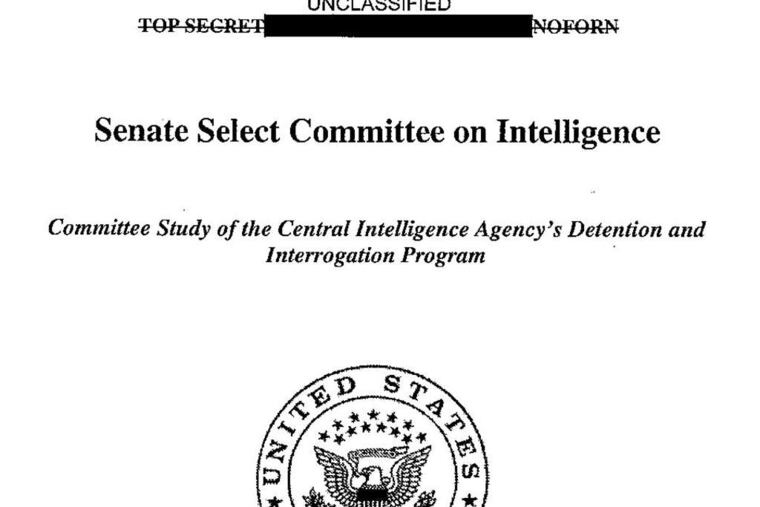Torture by any name
The Senate Intelligence Committee's "Study of the Central Intelligence Agency's Detention and Interrogation Program" has, for good reason, become better known as the torture report. Its first casualty should be the Orwellian doublespeak that afflicts even the title of a report whose subject is quite plainly not interrogation, but torture.

The Senate Intelligence Committee's "Study of the Central Intelligence Agency's Detention and Interrogation Program" has, for good reason, become better known as the torture report. Its first casualty should be the Orwellian doublespeak that afflicts even the title of a report whose subject is quite plainly not interrogation, but torture.
Torture, of course, is what the Spanish Inquisition and Vlad the Impaler did. It's not, we all agree, what Americans do. As President George W. Bush famously said, "This government does not torture people."
Except that in the years following the Sept. 11, 2001, terrorist attacks, the government sought to obey that principle not by refraining from torture, but by rebranding it. Hence the remarkable euphemism "enhanced interrogation techniques," which casts torture as a matter of refined rhetoric.
This delusion extends even to the current administration and Congress, which have been loath to disclose these crimes, let alone sanction them. Nevertheless, a redacted summary of the torture report, compiled by the Intelligence Committee's majority Democrats, was released this week, two years after its completion and over Republican objections to the effect that the report, rather than the torture, is a threat to America.
Along with the extralegal prison at Guantánamo and the National Security Agency's indiscriminate domestic snooping, the contents will go down as evidence of a period of gross American excess, if not hysteria.
The committee's investigation found that U.S. agents dragged detainees, punched them, and nearly drowned them. They deprived them of clothing, toilets, medicine, and sleep for days or weeks. They shackled them upright and forced them to stand on broken bones. They vowed to kill them and harm their families. They subjected them to procedures, like "rectal feeding," that sound a lot like rape.
The report found that 26 of the 119 prisoners so abused shouldn't have even been detained. One died, probably of hypothermia, shackled and half-naked on the floor of a secret foreign prison more aptly described as a "dungeon."
But did it work? The compendium of atrocities here reveals the absurdity of that question, one vigorously and pointlessly debated before and since the report's release. The committee found that torture yielded little crucial information in the hunt for Osama bin Laden or the race to prevent another attack, though the CIA insists it did precisely that. But the proscription of torture is not dependent on results. We should forswear the rack and thumbscrews regardless of what they might force out of victims.
While President Obama ordered an end to these methods in 2009, he also ruled out prosecuting those involved. A criminal case would be hobbled not only by the appearance of a political motive, but also by the Bush White House's broad justifications of brutality. That shouldn't prevent Obama and Congress from taking steps to ensure that those implicated are no longer employed by the government, and that the principles of the 2009 order are made explicit and permanent through legislation.
It's hard to rule out any means of retribution or retaliation while contemplating the horror of 9/11, the evil of the men who committed it, or the prospect of another massacre. Indeed, it's an existential challenge to a nation that claims, beginning with its Constitution, to enshrine means over ends.